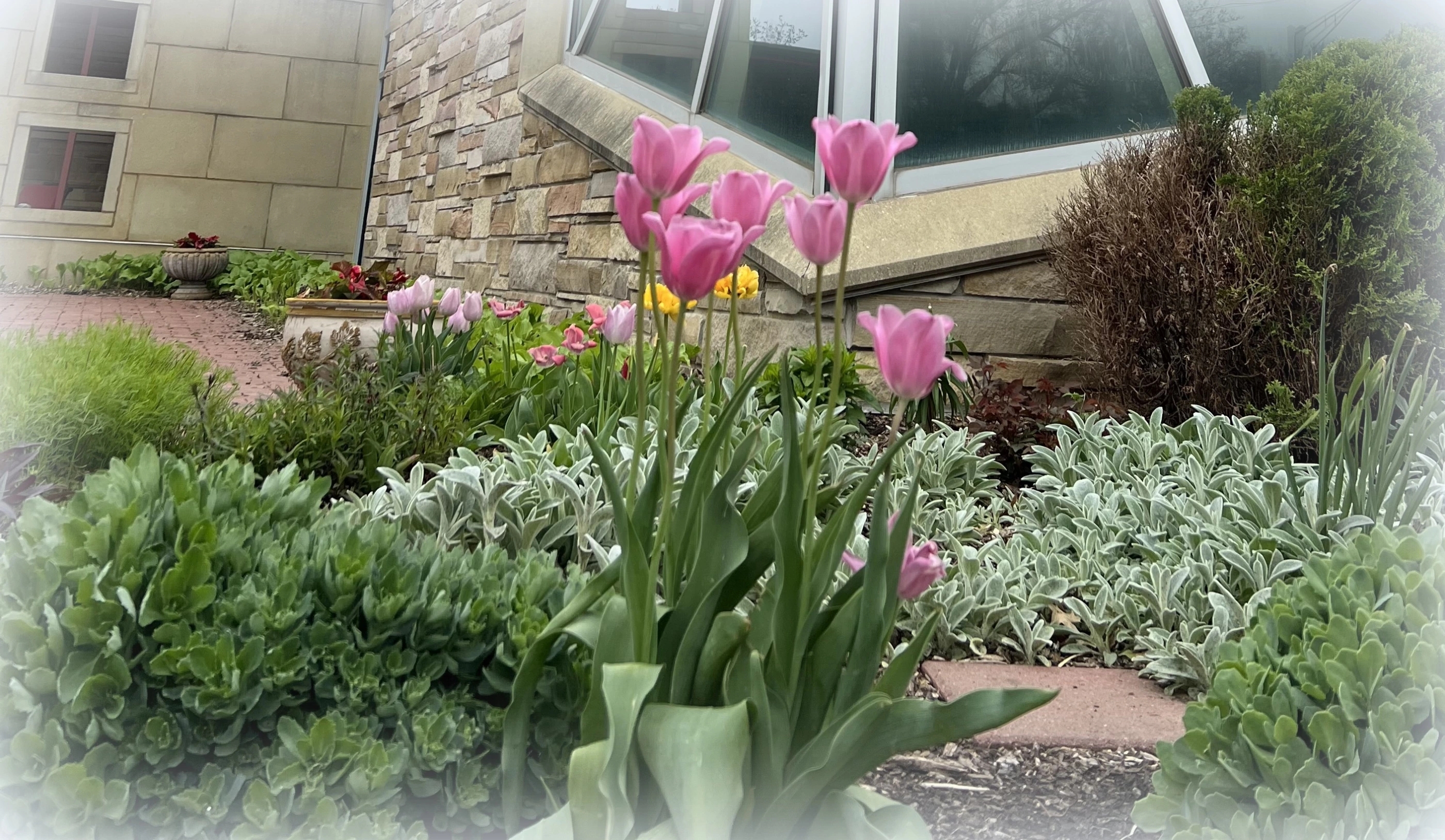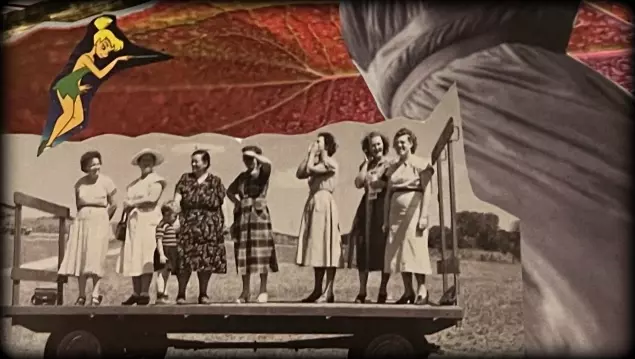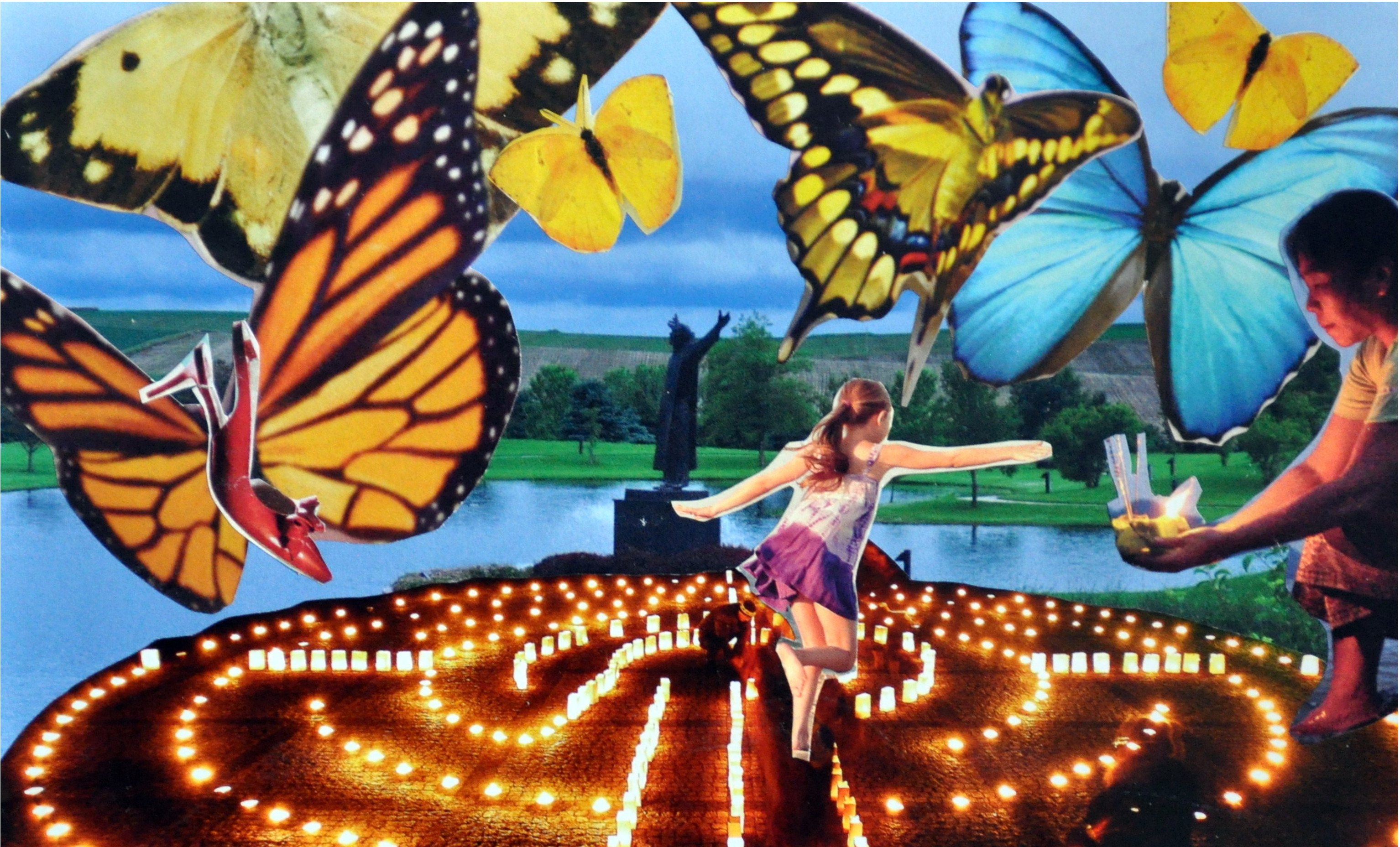“This tradition (for desert mothers and fathers) of asking for a word was a way of seeking something on which to ponder for many days, weeks, months, sometimes a whole lifetime. The “word” was often a short phrase to nourish and challenge the receiver. A word was meant to be wrestled with and slowly grown into.”
Christine Valters Painter
A new year is a reminder of our opportunity to begin again, the essence of “being Benedictine.” That simple tick of the clock from midnight to 12:01 a.m. marks in time our deep longing to begin again. Choosing a word of the year can be a prayerful intention to focus our awareness on an idea, a feeling, our hopes, or even an attribute we want to cultivate in our lives.

There are no rules for choosing a word. There is nothing magical about one word over another, but choosing a word that settles in your heart can reveal unexpected layers of meaning and new levels of understanding that can be both spiritually comforting and challenging.
I did not choose a word for 2022. My word for this year, CONSENT, chose me.
As I was re-reading lines I had highlighted from The Exquisite Risk by Mark Nepo, I was struck by this paragraph:

Both attracted to and challenged by the word CONSENT, I have spent several weeks considering what it might have to teach me. On first impression, consent sounds like a route of less suffering, acceptance of what is, peacefulness. Count me in for this kind of bliss!
But CONSENTING is not so easy. To consent sounds so passive—to give up or compromise, to settle. My nature is to resist what I do not prefer, to solve problems or change circumstances so that they are more ideal, to somehow fix even what I cannot control. I have a tendency to fight, to flee, to figure out, rather than to consent, to surrender, to let it be.

I consider the etymology and meaning of CONSENT.

To CONSENT is to feel together, to be with, to have harmony, consensus, agreement, acceptance. Suggested in the Nepo quote, consenting is to simply be, to surrender. Certainly, there are situations where consenting is not appropriate, but in “seasons of experience that will happen anyway,” I consent to CONSENT.
I would love to live like a river flows, carried by the surprise of its own unfolding.
John O’Donohue
Consent is about being, not doing. And yet, consenting is active, not passive. The paradox of doing nothing, the concept of non-doing or wu wei in Chinese, does not mean inaction, but effortless action. Wu wei is to swim not against the currents of life, to resist, but to be with the flow. It is a unity between self and our environment, a detachment from our own ego that can lead to less anxiety.
Consent is about acceptance. To consent is to let go of resistance, to be in harmony with what is, trusting that the future will bring us something to be grateful for. It is accepting uncertainty, that no matter what the future holds all shall be well.
“All shall be well, and all shall be well, and all manner of thing shall be well…for there is a force of love moving through the universe that holds us fast and will never let us go.”
Julian of Norwich
Giving consent is about learning from the seasons of life. Consenting to what life brings is to find the good in whatever is, to embrace the lesson in all circumstances. To consent is to grow in wisdom, embracing what has been learned before, not a judgement of what is or isn’t, what I’m having difficulty with or how I could do better, but a consent to grow in wisdom. This too shall pass and what remains is what I have learned.
Consenting lessens our suffering. It is possible to be at peace no matter what is happening around us. The exquisite risk is to still our own house, to find peace within.

Consent is more “Let it be” than “Let it go.” A friend passed on this wise advice—when faced with difficult circumstances or incessant thinking, practice repeating the mantra “let it go” three times while breathing deeply. On the fourth time, speak “let it be.” Letting be just feels different when saying it. It is a settling in, a resting into the reality of an experience.
Consent is a perspective, an attitude about what is to come. Consent is a reminder. Consent will teach me to remember to breathe even when my body holds it breath in fear or worry or trauma. What happened, happened. I can consent to what is and let it work itself out in my spirit. I consent to the reality of what is and I consent to allowing God to work in me so that I can more easily accept a reality I might naturally resist.
On retreat recently, I created a card called “Just Be With It: Stand Still” as I considered the word CONSENT. Using the practice of journaling with I am one who, I reflect:
I am one who watches and waits while feelings and emotions pass. I am one who rests and plays despite the intense feelings. I rest into the feelings, the experience. I listen inwardly, especially to dreams. I am one who trusts my intuition and gently sits with whatever is. I am one who has self-compassion. I am one who gives my “consent to the seasons of experience that will happen anyway, whether I consent or not (The Exquisite Risk, Mark Nepo).”

A word of the year has a serendipitous way of showing up in poetry, images, music, conversation and more. This poem showed itself just at the perfect time.
What to do in the Darkness
Go slowly
Consent to it
But don’t wallow in it
Know it as a place of germination
And growth
Remember the light
Take an outstretched hand if you find one
Exercise unused senses
Find the path by walking it
Practice trust
Watch for dawn.
-Marilyn Chandler McEntyre
Pondering this poem and contemplating the meaning of CONSENT throughout this year is an opportunity to begin again. Consent requires trusting that all shall be well—and it is not once and done, but a process of continuing to unfold over and again. All of life is “a place of germination/and growth.”

Some questions for self-reflection:
-Why do I feel doing is more important than being? Can I accept that consenting is not the opposite of action?
-How do I feel about consenting in various situations? Do I fear? Can I rest? How often must I consent?
-Am I afraid to consent because it means I am surrendering control? What does it mean to trust?
-What does it feel like to not control, to surrender? Is controlling a defense mechanism to protect myself from disappointment or pain?
-What does consent look like in this or that situation? What will reduce my suffering? How am I contributing to my suffering?
“We are so small and the Universe so large, and yet we are carried. Not always as we’d like, but we are carried… This is our threshold to being carried: to simply be and to give our consent to the seasons of experience that will happen anyway, whether we consent or not. For life doesn’t need our consent to sustain itself. But consenting lessens our suffering.”
The Exquisite Risk, Mark Nepo
See previous reflections on Word of the Year, HERE.




January 24, 2022 at 4:40 pm
I love how you said that you didn’t find your word, and that it found you. What a great way to have your word of 2022. My word is ‘fail’, and even though it sounds negative, it actually encourages me to take more chances. Anyway, thanks for this post!
LikeLiked by 1 person